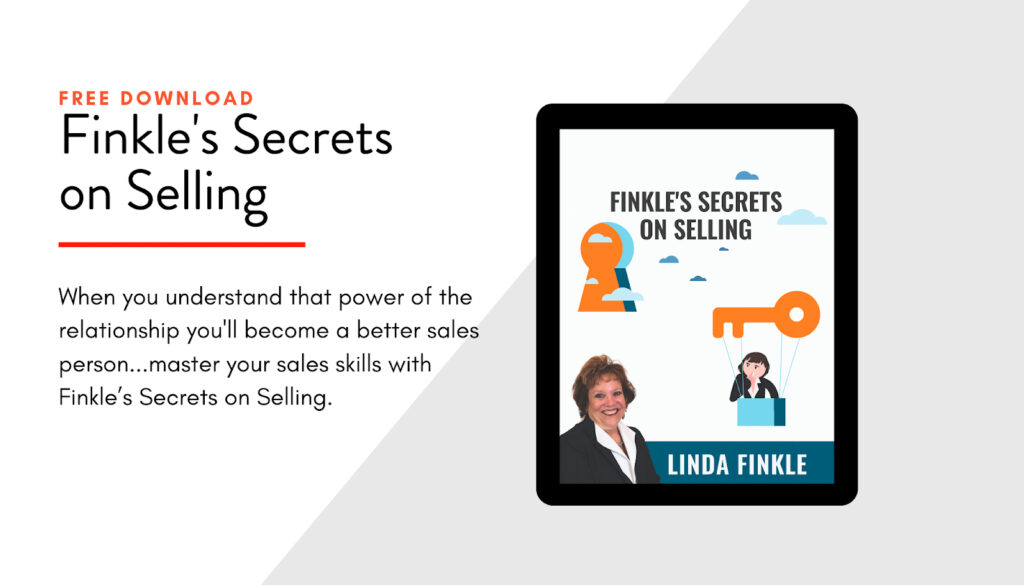Every day we influence people. Whether it’s convincing our team to see it our way, our children to do it our way, or getting someone to say yes to be on our committee; we use influence to get people to say yes.
Many people would say that the art of selling includes the art of influencing. I agree, with the caveat that the influence occurs throughout the sales process, not at the end when they are ready to buy.
I believe that success in the sales process happens when the salesperson is able to build a high-trust relationship with the prospect or customer.
When this happens there is very little need for the salesperson to persuade or induce the customer, it happens as a natural outgrowth of the relationship.
Now, you’re most likely thinking, ‘that’s great, but isn’t building a high-trust relationship influencing?’.
The answer is yes, sort of.
My premise is that as sales professionals we can influence how our customers view us, which in turn influences whether they trust us, which can also affect whether they buy from us or not.
So, yes, we influence, but this happens when we are building the relationship, not at the stage where they are ready to buy.
How does one build that high-trust relationship so that they ultimately want to buy from us? There isn’t one thing that you can do. It’s a combination of many things over time. It requires you to use a variety of communication skills and it has to come from your heart. By that I mean you can’t get people to trust you by using techniques or tools.
Unless what you do comes from your heart, you won’t build the type of high-trust relationship that will lead to long-term success in sales.
Here are my top four beliefs about sales and building trust:
1. Trust involves candor (being honest), competence, and concern (understanding and feeling their pain).
2. You don’t sell services or products. You sell to specific needs and how your service or product satisfies those needs or resolves a problem.
3. You can’t get a prospect to share their challenges or needs unless they trust you. Thus, you won’t know how to sell to their needs and will be selling general ideas rather than specific solutions.
4. In all sales situations, they buy you first, then the service or product.
How do you build trust?
1. Do what you say you are going to do.
This starts with the first interaction and everything else from that point forward. It’s calling when you say you will, sending proposals when you say you will…it’s delivering on what you say you are going to do when you say you are going to do it.
2. There’s an additional component here which includes the communication loop.
Sometimes you just can’t meet the commitment you made. The essential component here is that you communicate the situation to the customer and provide a new timeline or offer alternatives.
3. Be honest. Tell them what you can and cannot do.
4. Speak from your heart…be authentic. Nothing builds trust more quickly than a prospect being able to get to know who you are, not what you do.
Every time you do what you say you’re going to do. When you say you are going to, it makes people feel they can count on you, they can trust you to perform.
When it comes down to deciding if they should buy from you or your competitor this influences their decision. That’s the first step where sales success intersects with building trust.
The communication skills of listening, questioning, and a skill set I call direct communication, are essential for building trust.
Direct communication is the ability to communicate effectively and use language that has the greatest positive impact on the prospect.
It might include sharing an observation, instinct, or insight. It can also include challenging a customer’s thinking and having them be open to considering new ideas.
If you aren’t listening then you won’t ask the questions that will determine a customer’s needs or pain or how you can help them. You’ll miss key nuances and words that may have big meanings, such as fear, concern, regret, uncertainty, and lots of other words that have an emotional charge.
They may help you determine the next question to ask or provide you with information on how you can help them. And customers know when you aren’t listening.
Effective listening is key to building high-trust relationships.
You can influence if you are in a position of power over the other person as in the case of being a parent or the boss.
Advertising and promoting your product or service can have subliminal influence. Other customers providing testimonials can certainly persuade someone to buy. And sometimes you have something to offer that is so unique that you have no real competitors.
All of these factors will affect the sales process.
All I’m suggesting is that to have long-term success in sales, building high-trust relationships is more important than anything else.
It eases the path.
Objections either don’t come up or are more easily handled because they trust you. When problems arise, and they will at some point, you won’t lose the customer because they trust you will handle it.
This is not a complete list of the value of building relationships, it’s just to get you thinking. If you are going to spend time trying to determine how to influence customers,
I encourage you to spend your time learning the art of building high-trust relationships. Actions (as in purchasing) come out of the way we think, not the other way around.
When that customer feels comfortable with you and you have built that high-trust relationship, you already have everything you need to move the sales process along.
Want More Selling Tips?
I have created a list of my top tips that I have personally used over and over again to become a top salesperson.






